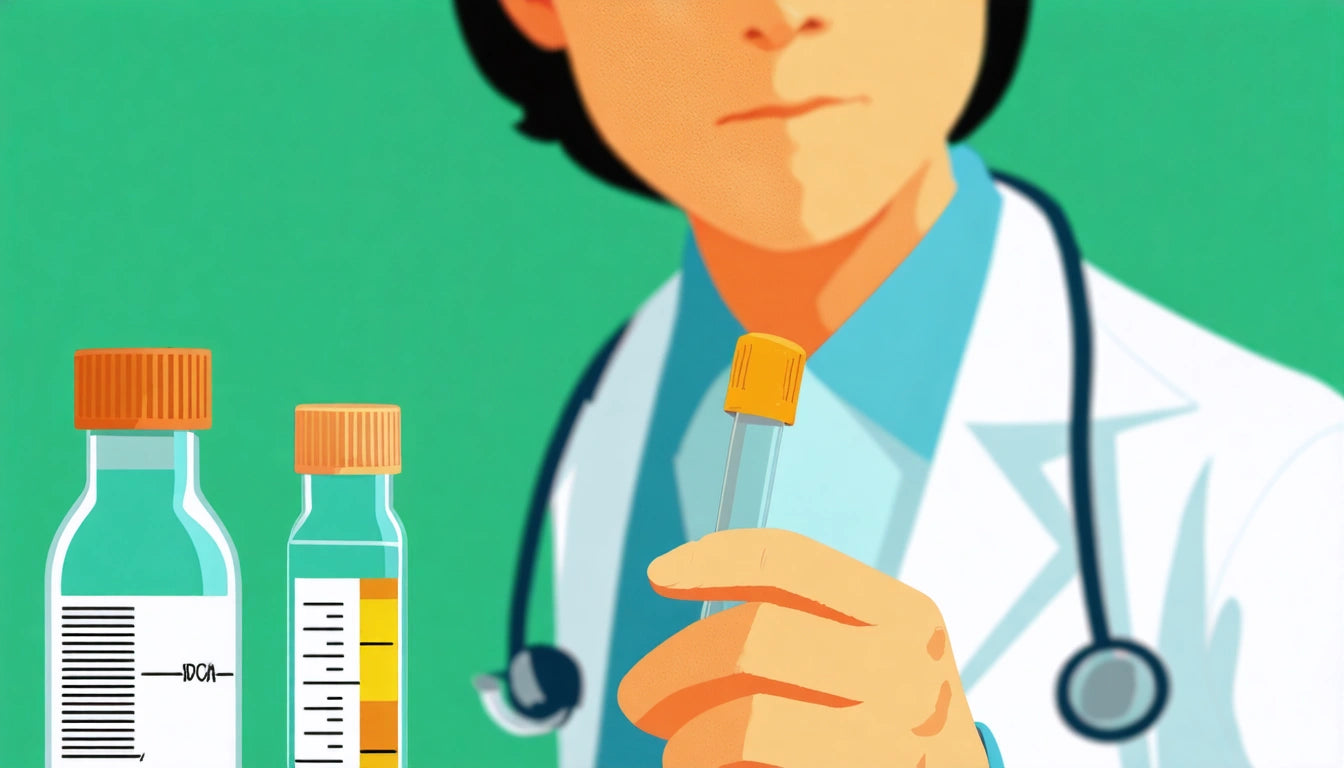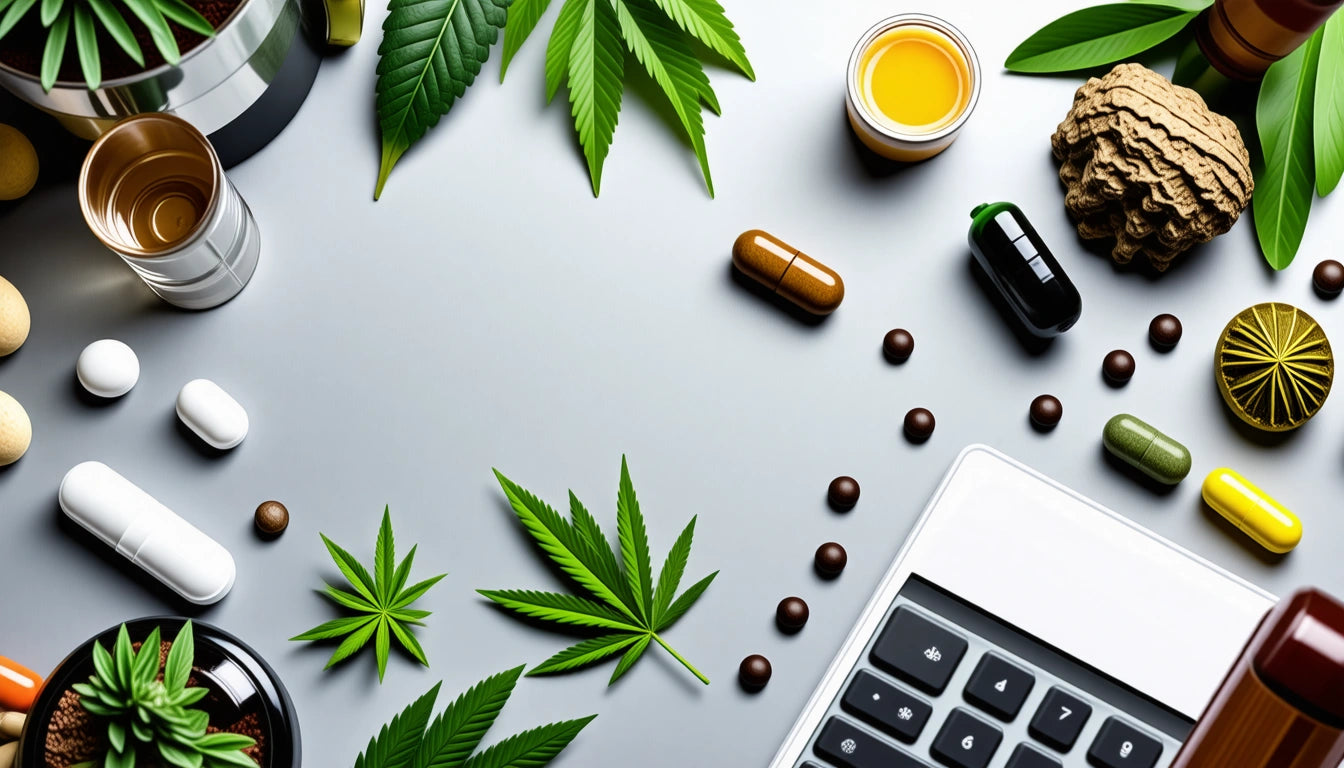Table of Contents
- Delta 8 THC Detection Basics: What You Need to Know
- How Different Drug Tests Detect Delta 8 THC
- Detection Windows for Delta 8 THC
- Factors Affecting Delta 8 THC Test Results
- Delta 8 and False Positives: Understanding the Risk
- Legal Considerations and Workplace Testing
- Risk Reduction Strategies for Delta 8 Users
Does Delta 8 THC Show Up on Drug Tests?
Delta 8 THC has gained popularity as a legal alternative to traditional cannabis in many states. However, this has raised important questions about its detectability in drug tests. If you're wondering "will delta 8 show up on drug screen" or "can delta 8 show up in a drug test," the short answer is yes, it typically can. Understanding how and why requires exploring how drug tests work and how your body processes cannabinoids.
Delta 8 THC Detection Basics: What You Need to Know
Delta 8 THC is chemically similar to delta 9 THC (the primary psychoactive compound in cannabis). When your body metabolizes delta 8, it produces similar metabolites to those created when processing delta 9 THC. Standard drug tests don't differentiate between these metabolites, which is why delta 8 THC products can trigger positive results.
Most drug tests screen for THC-COOH, a metabolite produced when your body processes any form of THC. Since both delta 8 and delta 9 convert to this compound, the test cannot tell which form you consumed. This means that even legal delta 8 products can potentially cause you to fail a drug test.
How Different Drug Tests Detect Delta 8 THC
Urine Tests
Urine tests are the most common screening method, especially for workplace testing. If you're concerned about whether "does delta 8 show up in urine test" results, be aware that these tests typically detect THC metabolites for 3-30 days after use, depending on frequency of consumption.
Blood Tests
Blood tests detect active THC rather than metabolites, offering a shorter detection window of 1-2 days for occasional users. However, they can detect THC for up to a week in regular users.
Hair Tests
Hair follicle tests can detect THC metabolites for up to 90 days, making them the most sensitive option. They're less common but might be used for high-security positions or legal proceedings.
Saliva Tests
Oral fluid tests typically detect THC for 24-72 hours after use, making them useful for detecting recent consumption rather than historical use.
Detection Windows for Delta 8 THC
How long delta 8 remains detectable depends on several factors:
- Single use: 3-8 days in urine
- Occasional use (weekly): 7-14 days in urine
- Regular use (daily): 30-60 days in urine
- Heavy, chronic use: Up to 90 days in urine
These timeframes are similar to those of delta 9 THC because the body processes both compounds in comparable ways, creating the same metabolites that tests detect. If you're wondering "will delta 8 show up in a drug screen" after a specific timeframe, these estimates can help guide your expectations.
Factors Affecting Delta 8 THC Test Results
Several variables influence how long delta 8 remains detectable:
Metabolism
Individual metabolic rates affect how quickly your body processes and eliminates THC. Factors like age, activity level, and genetics all play roles in metabolic efficiency.
Consumption Patterns
Frequency, dosage, and method of consumption significantly impact detection windows. Edibles like delta 8 gummies may have different absorption rates than vape products, potentially affecting how long metabolites remain in your system.
Body Composition
THC metabolites are fat-soluble, meaning they bind to fat cells. People with higher body fat percentages may retain THC metabolites longer than those with less body fat.
Hydration and Diet
Proper hydration can help dilute urine concentration, though this alone won't guarantee passing a test. Some foods and supplements may temporarily accelerate metabolism but have limited impact on test results.
Delta 8 and False Positives: Understanding the Risk
While delta 8 THC is federally legal in many places, this legal status doesn't prevent it from triggering positive drug test results. This creates a challenging situation for users who may be consuming a legal product but still face consequences for failing a drug test.
If you're asking "can delta 8 make you fail a drug test," the answer is yes. Most standard tests cannot differentiate between delta 8 and delta 9 THC metabolites. Even multi-panel drug tests that screen for various substances will typically flag any THC metabolites without distinguishing their source.
This is particularly relevant for safety-sensitive positions or industries with zero-tolerance policies. Users should be aware that product safety standards are also important, as highlighted in regulatory guidelines for consumer product packaging, which emphasize both safety and accessibility for adults while preventing child exposure.
Legal Considerations and Workplace Testing
The legal landscape surrounding delta 8 THC is complex and evolving. While federally legal under the 2018 Farm Bill (when derived from hemp with less than 0.3% delta 9 THC), some states have specifically banned delta 8 products.
Even in states where delta 8 is legal, employers can still maintain drug-free workplace policies that don't distinguish between different forms of THC. This means you could potentially face employment consequences for using a product that's legal in your state.
If you're subject to drug testing, it's important to understand your employer's specific policies regarding different forms of THC. Some employers may be updating their policies as cannabinoid products evolve, but many still use traditional testing methods that don't differentiate between delta variants.
Risk Reduction Strategies for Delta 8 Users
If you use delta 8 products but need to pass a drug test, consider these approaches:
- Timing: Discontinue use well before anticipated testing (ideally 2-4 weeks for infrequent users, longer for regular users)
- Hydration: Drink plenty of water to help flush your system (though this alone won't guarantee passing)
- Research: Understand which delta products might be less likely to accumulate in your system
- Communication: If legal in your state, consider discussing your legal delta 8 use with relevant parties before testing
- Product selection: Choose products from reputable manufacturers who provide third-party testing results
Remember that delta 8 THC differs from traditional cannabis in legal status, but not necessarily in how it's detected by drug tests. The metabolites your body produces after consuming delta 8 are essentially identical to those produced after consuming delta 9 THC.
Understanding these realities can help you make informed decisions about delta 8 use, especially if you're subject to drug testing for employment, legal, athletic, or other purposes.











Leave a comment
All comments are moderated before being published.
This site is protected by hCaptcha and the hCaptcha Privacy Policy and Terms of Service apply.